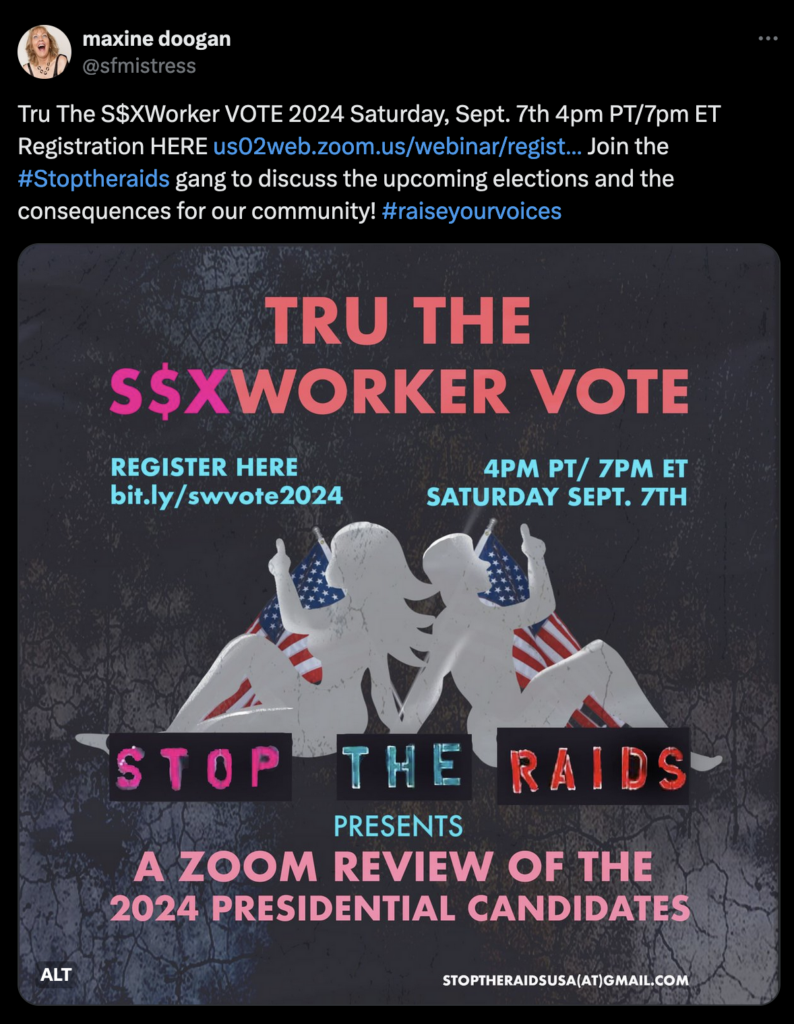Feds Seek 20-Year Sentence for Backpage Co-Founder Michael Lacey
It's an insane ask for someone convicted of just one nonviolent offense.

Federal prosecutors are recommending a 20-year prison sentence for Backpage co-founder Michael Lacey, who was found guilty last fall of one count of international concealment of money laundering. It's an insane ask for someone whose only conviction is for one nonviolent crime, especially considering the circumstances of that conviction.
Concealment?
"The context for the international concealment money laundering conviction is critical," writes Lacey's lawyers in a motion seeking a less severe sentence. "This is not a case where the defendant went off on his own to hide an asset. Instead, in the years that preceded the international wire transfer at issue, federal law enforcement officers
had visited his banks and suggested to those banks that it would be bad for their reputation to have him as a client, which then resulted in the banks terminating their relationship with him. This occurred when there were no charges pending."
In other words, the federal government worked to deny Lacey access to U.S. banks and then charged him for trying to park his money somewhere.
You are reading Sex & Tech, from Elizabeth Nolan Brown. Get more of Elizabeth's sex, tech, bodily autonomy, law, and online culture coverage.
"While visiting his long-time trusts-and-estates lawyer, John Becker, on an unrelated matter, Michael mentioned his inability to maintain banking," Lacey's motion explains.
In response, Becker suggested that a foreign bank might stabilize his banking, and suggested that they meet with another lawyer who specialized in offshore assets. That lawyer suggested a bank in Hungary and the creation of a trust for the benefit of his sons.
The entire transaction was papered and executed by counsel. Michael did not hide anything from his counsel, explaining to them that the funds at issue were from the sale of Backpage. As his counsel, Becker, explained at trial, he believed and still believes the transaction to be fully lawful. There was no intent to conceal, and no actual concealment, but rather, an intent to disclose and actual disclosure.
Further complicating matters is a lack of proof that Lacey knew any money from Backpage may have been derived from unlawful activity—a condition crucial for sustaining the money laundering conviction.
Double Jeopardy?
Lacey and the other Backpage defendants "made a calculated decision to pursue a livelihood built on prostitution ads, and maintained that path, year after year, supporting a succession of criminal users of their website," prosecutors allege in their sentencing memorandum.
Lacey was charged—along with other former Backpage executives—of using Backpage to knowingly facilitate prostitution, in violation of the U.S. Travel Act.
Two of the defendants were acquitted of all such offenses and two of the defendants were found guilty of some of them. But the jury could not reach a conclusion when it came to Lacey. U.S. District Judge Diane Humetewa found there was insufficient evidence to sustain most of the remaining 84 counts against him.
Now, prosecutors want the judge to simply act, for sentencing purposes, as if those charges are all true.
Federal prosecutors are also putting Lacey on trial for these charges again—which means that if he is eventually convicted, he could wind up being sentenced twice for the same conduct.
"The conduct pertaining to the unresolved counts should not be considered because if Michael's sentence for [the one count on which he was found guilty] is increased based on that conduct and, if there should be any convictions pertaining to that conduct at a third trial, he would be punished twice for the same conduct, in violation of the Double Jeopardy Clause," his lawyers write.
The whole motion is worth a read to get a picture of who Michael Lacey is, including his long career in journalism and his many legal battles over free speech. It also delves into Lacey's longstanding defense of Backpage allowing sex workers to post classified ads: that these services are not de facto illegal and Backpage was protected by the First Amendment.
Michael knew from his decades as a publisher that advocacy groups and even law
enforcement would target the publishers of unwanted speech, regardless of its protection by the First Amendment. The attention Backpage's adult content attracted appeared to be no different. Michael was walled off from the business side of the newspaper company, but had repeatedly received assurances from his long-term partner that, after seeking advice from top-tier lawyers from reputable national law firms, the company was operating in conformance with the law. He also knew the person in charge of Backpage [Carl Ferrer] had been testifying under oath as a witness for federal prosecutors and had received commendation after commendation from law enforcement thanking him for his assistance, including from the F.B.I. Director. In that light, his decisions were rational and principled.
Public Safety?
Lacey's lawyers argue that a lengthy imprisonment could be detrimental to his health and wouldn't serve any public safety purpose.
"He is 76. He has high blood pressure, high cholesterol, coronary artery disease, and obstructive sleep apnea," they write. "He takes medication for these illnesses. He must swim or ride a stationary bicycle to keep his weight and medical issues in balance."
They go on to ask who would supposedly be served by putting an old man away for probably the rest of his life for a financial crime with no victim.
"Incarceration is not necessary to protect the public," because "even if the Court considers the unresolved conduct, which it should not, the thing that made him a purported threat to public safety—the Backpage website—was taken down more than six years ago."
Of course—as Reason has noted many times—this case has never been about protecting the public, and certainly not about protecting sex workers, who say their work is more dangerous without websites like Backpage. It was about getting good P.R., seizing assets, punishing people who wouldn't back down, and creating a playbook for going after tech companies that don't do the government's bidding.
Already Punished?
Prosecutors are recommending that Lacey be "sentenced to 240 months in custody, followed by three years of supervised release."
Lacey's lawyers say he has been punished enough already—by living under federal indictment since April 2018, wearing an ankle monitor for much of this time, having his assets seized, and losing "his dearest friend, Jim Larkin, who could no longer handle the stress of this case" and committed suicide days before the trial began last August.
"Days after the funeral, this trial began," his lawyers write. "Although the sudden and tragic loss of his friend made it difficult to be present and focused at trial, he was comforted by what Jim said to him the day before he killed himself—a fact that was borne out by the proof at trial—'Mike, you'll be ok. You didn't have anything to do with Backpage.'"
Lacey's lawyers are seeking a sentence of probation. Sentencing is scheduled for August 27 and 28.
More Sex & Tech News
Democrats Remove Sex Worker Language From Platform

The Democratic Party has removed language about sex work from its official 2024 party platform. From XBiz:
The 2020 platform voted by the convention that nominated President Joe Biden, however, included the following passage: 'We recognize that sex workers, who are disproportionately women of color and transgender women, face especially high rates of sexual assault and violence, and we will work with states and localities to protect the lives of sex workers.'
The 2024 version released over the weekend, expected to be approved at the Democratic National Convention currently taking place in Chicago, omits the statement recognizing the existence of sex workers and stating a commitment to protect their lives.
Rhode Island sex worker rights group COYOTE RI said the move wasn't surprising. "Sex Workers will be gathering online to discuss these and other related election issues in Tru The S$xWorker Vote, on Saturday, September 7, 2024," the group noted in its most recent newsletter.
See also: What sex workers want from Kamala Harris.
FIRE Sues Over SCOPE Act
The Foundation for Individual Rights and Expression (FIRE) is suing to stop the Securing Children Online through Parental Empowerment (SCOPE) Act, which FIRE calls an "unconstitutional attempt to childproof the internet."
The SCOPE Act, signed into law in 2023, "requires social media platforms to register the age of every new user," FIRE explains. "Under the law, platforms would be forced to track how much of their content is 'harmful' to minors and, once a certain percentage is reached, force users to provide government ID or biometric data to demonstrate that they are 18 or older."
"In a misguided attempt to make the internet 'safe,' Texas' law treats adults like children," said FIRE Chief Counsel Robert Corn-Revere in a statement. "But even minors have First Amendment rights. Whether they're 16 or 65, this law infringes on the rights of all Texans."
Trafficking Victim Sentenced to 11 Years
Chrystul Kizer has been sentenced to 11 years in prison for killing a man who was sexually abusing and exploiting her when she was a minor. In June 2018, Kizer fatally shot Randall Volar and set his house on fire. Last May, Kizer pleaded guilty to killing him in 2018, when Volar was 34 years old and she was age 17.
"Kenosha County District Attorney Michael Graveley had argued that Kizer carried out a premeditated killing to steal Volar's BMW, while public defender Jennifer Bias said Kizer acted in self-defense after Volar had pinned her to the ground while trying to initiate sexual contact," notes The Washington Post. More:
A 2019 Washington Post investigation showed that the Kenosha Police Department knew Volar was abusing underage Black girls for nearly three months before his death. After a 15-year-old Black girl fled from his home in nothing but a bra and jacket, police raided Volar's residence and found hundreds of videos of child sexual abuse; among the stash were videos Volar had made of Kizer and girls who appeared to be as young as 12. But while the investigation continued, police and prosecutors allowed Volar to remain free.
A judge has now sentenced her to spend 11 years in prison. "The court is well aware of your relationship with Mr. Volar," Kenosha County Judge David Wilk said during Kizer's sentencing hearing. "However, you are not permitted to be the instrument of his reckoning. To hold otherwise is to endorse a descent into lawlessness and chaos."
See also: "Sex workers are trafficking victims until cops don't want them to be."
Today's Image



Show Comments (23)